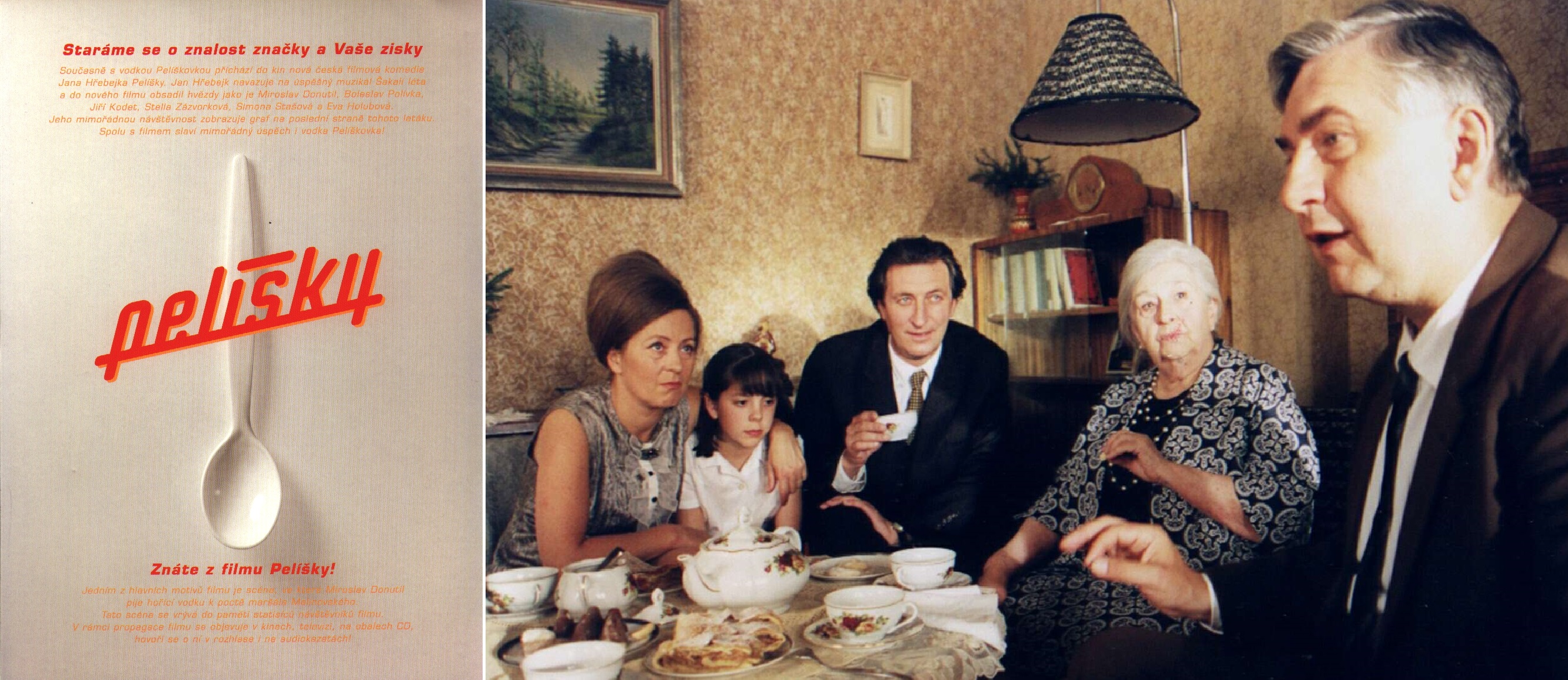With the anniversary in November, we look back at the most famous films about the communist era in Czechoslovakia, some successful, other less so
Like the masters of the Nová Vlna earlier, young Czech directors use the camera lens to analyze the history of their own country
Almost 25 years after the Velvet Revolution, it seems the time has come to explore the Czech films, which have represented the period of the communist regime in this country in the most incisive way. Among other things, it has just been announced that the Czech Film Academy have chosen the film “Fair Play”, from director Andrea Sedláčková, to represent the Czech Republic in the next edition of the Oscars. The film speaks of the resistance against the despotic system of the regime, focusing precisely on doping in sport, a widespread phenomenon in pre ‘89 Czechoslovakia.
 In fact since 1989, the communist era has become one of the most common subjects in Czech cinema, very much like the German occupation was in the Czechoslovak cinema of the 50s and 60s.
In fact since 1989, the communist era has become one of the most common subjects in Czech cinema, very much like the German occupation was in the Czechoslovak cinema of the 50s and 60s.
It should also be said that the Velvet Revolution immediately gave the green light to the distribution of all the Nová Vlna masterpieces from the 60s, primarily the films that had taken a critical stance towards the regime and which had therefore been banned during the subsequent period of normalization.
Among these one remembers the great works of Miloš Forman and Jiří Menzel. Yet one which stood out in particular was “Ucho” (The Ear), filmed in 1970 by director Karel Kachyňa. No other work of the period has managed to create such a realistic portrait of the stifling and oppressive atmosphere of the post ‘68 normalization.
The film depicts the relationship between a husband and wife, who after coming home from a party find the power cables cut and they fear they are under surveillance. The film recreates the atmosphere of paranoia in an unparalleled way. Yet we must emphasize that the subtlety and intelligence of the plot were also the result of the restrictions imposed by the regime of time. We are indeed talking about a cinema that not only no longer exists, but which nowadays would not even be possible to replicate.
In the Czech film industry after 1989, the state monopoly was abolished and censorship was eliminated, and consequently Barrandov studios and halls were privatized. The main forms of financing for the films remained a matter for the State.
The above resulted in new freedom, but these conditions also created a new Czech cinema, with the emergence, in the early nineties, of a new generation of directors, almost all between twenty-five and thirty years old. Among the most significant we can mention Jan Svěrák, Saša Gedeon and Jan Hřebejk. Much like the masters of Nová Vlna, Jiří Menzel, Věra Chytilová, Juraj Herz, these younger directors also use the camera to analyze the history of their country, and in particular the period of the communist regime.
We will start with Svěrák, the director with the most success in the international arena. His “Kolya”, won an Oscar for best foreign film in 1997, and in addition to re-evaluating the relationship between the Czechs and Russians, it is interesting, to put it this way, also due to its vision of Communism, being set partly during the period of normalization.
Kolya tells the story of a cellist, played by Zdeněk Svěrák, a Czech comedy legend and also the director’s father, who, for economic reasons, accepts a marriage of convenience with a young Russian woman, a mother of a child. His wife leaves him immediately after the wedding, leaving him temporarily with her five year old son. After initial difficulties, a bond of great humanity develops between the man and the child, while in the meantime in Czechoslovakia the Velvet Revolution breaks out. It is a story full of references to the reality of the time: the bureaucracy, attitudes bordering on the ridiculous from the secret police and the many ironic comments on the regime and the need to resist it.
To mention a more recent, less commercial film, with perhaps a more significant depiction of the communist era, one should explore “…a bude hůř”, (…It will be worse) by Petr Nikolaev, 2007. A film which while not entirely successful, however remains a fascinating work precisely because it is focused on outcasts of society in the period. Characters that lose themselves in a world of drugs and sex, listening to music banned by the regime, and consider their lifestyle as a form of protest against the status quo.
The two best-known film accounts of life in communist Czechoslovakia, among the films produced in the post-‘89 period, are probably “Pelíšky” (1999, Cosy Dens), and “Pupendo” (2003), both written by screenwriter Petr Jarchovský and directed by the Prague-born director Jan Hřebejk. Two films boasting huge commercial success.
We must acknowledge that if compared to the Nová Vlna, the cinema of Hřebejk is sorely lacking any form of political analysis, as is also the case in the films of Sverák. Their film reflect the everyday life of ordinary people instead, and how their citizens get by. The political side, however, almost ends up being absent.
 Pelíšky ironically recreates the atmosphere of the year of the Prague Spring, through the lives of two families, one communist and the other anti-communist, who both live in the same building. The respective heads of families are constantly at odds. On one side there is Šebek, a former officer and a fervent supporter of Communism, and on the other there is Kraus, a former member of the Resistance, whose brother had fought for the RAF, the Royal Air Force of the United Kingdom. Their wives and children, however, seem to display little interest in the political affairs of their country. That is, at least, until the fateful Soviet invasion in August 1968, an event portrayed as a tragedy, but also as a crisis that ends up uniting the two families. The film is more a diary of family life than an analysis of the ‘68 events, although it is precisely the political reality of the time that determines the lives and fates of all the characters.
Pelíšky ironically recreates the atmosphere of the year of the Prague Spring, through the lives of two families, one communist and the other anti-communist, who both live in the same building. The respective heads of families are constantly at odds. On one side there is Šebek, a former officer and a fervent supporter of Communism, and on the other there is Kraus, a former member of the Resistance, whose brother had fought for the RAF, the Royal Air Force of the United Kingdom. Their wives and children, however, seem to display little interest in the political affairs of their country. That is, at least, until the fateful Soviet invasion in August 1968, an event portrayed as a tragedy, but also as a crisis that ends up uniting the two families. The film is more a diary of family life than an analysis of the ‘68 events, although it is precisely the political reality of the time that determines the lives and fates of all the characters.
Overall Hřebejk’s vision could be considered a rather ironic one of Communism. Among the funniest scenes include one in which Šebek gives Christmas presents to his children, bragging that he had got hold of “unequalled, unbreakable glasses from Poland”. The son does not believe it, and decides to put the theory of his father to the test, throwing the glass to the ground and shattering it into pieces, to his father’s dismay. Pelíšky much like Kolya presents Communism as a world to endure and tolerate, using also a touch of humour.
Pupendo is one of the few films that touches upon the issue of dissidence in the years of normalization, with a great performance by Bolek Polívka, in the role of a discredited sculptor, in collision with the regime for his refusal to conform and adapt to it. As a result of his clash with the authorities, he struggles to find a regular job, unlike his ex-wife and her husband who are members of the party. Like other post Velvet Revolution Czech films on communist Czechoslovakia, Pupendo does not attack the period as the masterpieces of the 60s did, such as the aforementioned “Ucho” or “Všichni dobří rodáci” (All my compatriots) by Vojtěch Jasný from 1969, or “Žert” (The Joke) from 1969, the film adaptation of the masterpiece of Czechoslovakian literature by Milan Kundera. There were genuinely films that harshly criticized the regime and consequently ended up being banned.
In the years following the Velvet Revolution, Czech cinema has provided us with a mainly ironic view of the pre ‘89 years. Only recently, after the success of the television series “Hořící keř” (Burning Bush) last year, which recounted the events in the aftermath of the death of Jan Palach, have we noticed the new trend of telling stories of heroes who have fought or taken positions against the regime. This is exactly the case with “Fair Play”, which we mentioned earlier. This particular film, is the story of an athlete who refuses to use anabolic steroids to compete in the Olympics despite the orders from her government. A great film that we recommend you to see in this particular period of various celebrations, which mark and commemorate the end of the communist regime.
by Lawrence Formisano




